TREE Fund awards over half a million dollars in new grants in 2016
Naperville, IL, March 16, 2017 – TREE Fund is pleased to announce its final round of 2016 grant awards for urban tree research and education. With these grants, the 501(c)3 charity reached a record-breaking ~$550,000 in new awards in 2016, bringing its total disbursement of funding to nearly $3.2 million since its inception in 2002.
“We achieved this higher level of grant-making in 2016 by increasing both the number and the value of several of our grant lines,” explains TREE Fund President and CEO J. Eric Smith. “We are proud and excited to be able to empower a larger body of new work, all through the tremendous international support we receive from our individual and organizational partners.”
Grants issued in the latter part of 2016 included an important long-term utility arboriculture test program in California; three grants supporting research on safe rigging, accurate tree surveying, and proper root removal; and TREE Fund’s signature Research Fellowship designed to cultivate emergent lines of inquiry in the field. Two Jack Kimmel International Grants, supported by Canadian TREE Fund and its riders in the STIHL Tour des Trees outreach and fundraising event, will fund essential work on soil cell technology and climate change.
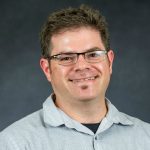
2016 Research Fellowship Grant recipient:
Mitchell Pavao-Zuckerman, PhD (University of Maryland) and Co-Investigator Dr. Raymond Weil (University of Maryland) will evaluate approaches to improve urban soil quality, including the use of agricultural cover crops. The “Innovative Practices to Enhance Soil Quality for Vacant Urban Lot Afforestation” project also supports the training of a PhD student who is a practicing landscape designer, thus expanding the scope of professions that address soil quality and management for urban forestry practice.
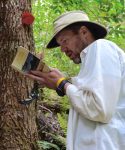 2016 Utility Arborist Research Fund Grant recipient:
2016 Utility Arborist Research Fund Grant recipient:
Christopher M. Halle, PhD (Sonoma State University) and Co-Investigator Claudia Luke, PhD (Sonoma State University) will compare the efficacy of mechanical only vs. mechanical plus herbicide treatment in establishing low-growing native plant communities in a range of western ecosystems in the “Integrated vegetation management on powerline rights of ways: effects of vegetation treatment on plant communities and wildlife diversity” project. The effects on local animals and pollinators will also be studied. TREE Fund thanks Pacific Gas and Electric Company and Utility Arborist Association for their support of this directed grant.
2016 John Z. Duling Grant recipients:

Adam Berland, PhD (Ball State University) and Co-Investigator Jess Vogt, PhD (DePaul University) seek to understand the possibilities and limitations of virtual street tree surveys using Google Street View in their “Evaluating virtual street tree surveys as a tool for municipal forest management” research. The study will look at data quality using this approach and assess how analyst expertise impacts it. Findings will provide guidance for communities considering this innovative inventory approach.
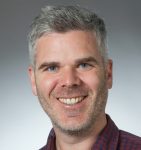
Justin Morgenroth, PhD (University of Canterbury, New Zealand) and Co-Investigator Andrew Koeser, PhD (University of Florida) will monitor physiological and tree growth responses to various root removal treatments in “Measuring tree response to increasing root removal intensities.” This work will help determine ‘acceptable’ root removal limits, and establish evidence-based root removal guidelines.
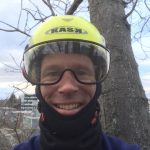 Brian Kane, PhD (University of Massachusetts Amherst) and Co-Investigator Mark Reiland (University of Massachusetts Amherst) will assess the likelihood of failure of different parts of a tree rigging system in their study “Measuring forces at multiple locations in rigging systems.” This robust project will help tree care professionals understand exactly which parts of the rigging are more likely to fail under different scenarios.
Brian Kane, PhD (University of Massachusetts Amherst) and Co-Investigator Mark Reiland (University of Massachusetts Amherst) will assess the likelihood of failure of different parts of a tree rigging system in their study “Measuring forces at multiple locations in rigging systems.” This robust project will help tree care professionals understand exactly which parts of the rigging are more likely to fail under different scenarios.
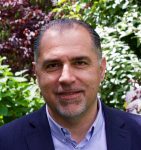 2016 Jack Kimmel International Grant recipients:
2016 Jack Kimmel International Grant recipients:
Francesco Ferrini, PhD (University of Florence, Italy) and Co-Investigator Simone Orlandini, PhD (University of Florence, Italy) hypothesize that the common but harmful pruning practice called topping not only depresses tree health, but also directly reduces thermal comfort and human well-being in cities. They will explore this possibility in their study “Effect of topping on microclimate condition and human comfort.”
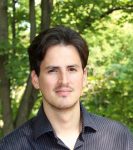
Camilo Ordóñez, PhD (Ryerson University, Canada) and Co-Investigator Andrew Millward, PhD (Ryerson University, Canada) are evaluating the factors that contributed to the decline and mortality of urban trees in Toronto planted using structural soil cell technology. Their project, “Investigating street tree decline and mortality in commercial urban spaces revitalized with structural soil cell technology to improve planting and maintenance practices,” will help guide future decisions about the use of this technology.
2016 Ohio Chapter ISA Education Grant recipient:
 The Holden Arboretum (Kirtland, Ohio) seeks to increase awareness and interest in the areas of community forestry and arboriculture among middle and high school students through its two-day Forest Immersion XP camp.
The Holden Arboretum (Kirtland, Ohio) seeks to increase awareness and interest in the areas of community forestry and arboriculture among middle and high school students through its two-day Forest Immersion XP camp.
2016 Scholarship recipients:
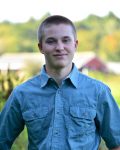


l. to r.: Conor Smith (U. of New Hampshire), Thomas McNulty (Penn State University), Allison Wilson (Penn State Mont Alto)
View all past recipients of TREE Fund grants and scholarships here.
About TREE Fund
TREE Fund is a 501(c)3 charity dedicated to the discovery and international dissemination of new knowledge in urban forestry and arboriculture (the science of caring for trees in a landscape). TREE Fund manages a portfolio of scholarships and education grants to engage and support the next generation of tree stewards, and multiple research grants to improve the science, safety and practice of arboriculture.
With support from individual donors and Partners, TREE Fund research has contributed to:
- Improving conditions for tree growth in difficult sites
- Developing strategies to manage diseases and pests that affect urban trees
- Improving utility line clearing practices
- Understanding air pollution reduction and carbon sequestration by trees
- Determining the costs and benefits of urban trees
For more information, visit treefund.org.
# # #
